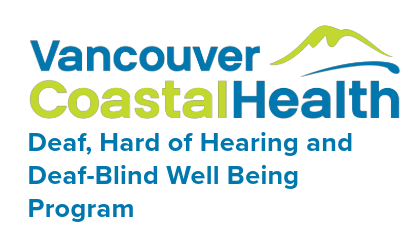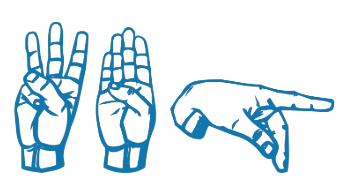The Well-Being Program was created to provide accessible mental health services for Deaf, Hard of Hearing, Deaf-Blind clients, and in some situations, with their families.
A priority of the WBP is addressing cultural and/or language barriers to facilitate clients’ access to and benefit from mental health and addiction services. For example, historically, hearing services did not provide sign language interpreters, nor did they understand how to communicate with the Hard of Hearing.
The WBP provides services for those who identify themselves as culturally Deaf & communicate with sign language. The WBP also provide services for those who may identify themselves as oral deaf, hearing impaired, or hard of hearing, as well as those who may communicate orally. Not only that, people who experience hearing loss early or later in their life can use the services.





